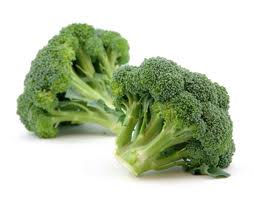According to CTV.ca -
"For anyone watching their cholesterol, Canadian researchers say eating a single egg could be more harmful than munching the current king of fast food indulgences.
According to a new report published in the Canadian Journal of Cardiology, one egg yolk can contain more cholesterol than a KFC Double Down sandwich.
Compared to the 150 milligrams of cholesterol contained in the now-famous sandwich comprised of bacon, cheese and sauce sandwiched between two pieces of deep fried chicken, researchers say a single egg can contain between 215 and 275 milligrams. A Big Mac contains just 75 mg of cholesterol, while a footlong meatball sandwich from Subway packs 90 mg."
It's not just CTV.ca. The Toronto Star and the Toronto Sun have published similar articles calling this incredibly unhealthy sandwich "healthier" than an egg. A nutrient-packed, incredibly healthy, whole food egg.
The way I see it, there are 2 BIG problems with this article -
1. Using only dietary cholesterol as a way of judging if a food is "good" or "bad"
2. Considering dietary cholesterol as an issue when dealing with heart disease risk
Let me start with the first point, using cholesterol as the only comparison....I need to simmer for few minutes before I start into a "cholesterol isn't bad for you!" rant. :)
Many clinical studies, including one by The Harvard School of Health, found that eggs do not raise blood cholesterol in healthy individuals AND has even been shown to raise "good" HDL cholesterol! The KFC Double Down, on the other hand, is FULL of transfat. Transfat has been found, in pretty much every study ever it's been in, to raise cholesterol levels and increase the risk of heart disease.
One is a nutrient-packed whole food and the other one of the most unhealthy fast foods ever created! I'm quite impressed that the writer of this (well, these) articles had the guts to compare such different foods.
I think the biggest problem with this article is the way that we're looking at food and health in general. We're trying to put everything on a "good" or "bad" list. Even worse, we're trying to put single components in food onto a "good' or "bad" list, opening the doors for manufactured foods that are "healthier" than their whole food components. Some of these articles even list egg white substitutes as the healthier option if you're going to eat eggs! How is that possible!? ....I'll get into this topic in more detail in my next post...:)
Back to cholesterol - Why is the consideration of dietary cholesterol an issue? Because it is an essential part of our diet. Our bodies use cholesterol to make Vitamin D and hormones. It also uses it to repair arterial damage.
...wait, I thought cholesterol clogged our arteries?!
Yes, it can, but one of it's main roles in our body is to repair damaged to our arteries - caused by free radicals, heavy metals, and transfats...just to name a few (many of which are in the manufactured foods that have the "Health Check" symbol"). As well, our liver manufactures about 80% of the cholesterol in our body, and it's well-proven fact that the cholesterol in our diet has a very small effect on the amount of cholesterol in our bloodstream.
Instead of trying to reduce the cholesterol in your bloodstream through medication or dietary "products", ask yourself, why is it high? What am I eating that might be causing my body to raise the cholesterol in my bloodstream? Eating a diet that balances YOUR body (a diet unique to you) is the best way to keep you healthy and keep your cholesterol where it should be.
For the full CTV.ca article, click
HERE - did I mention, a similar article, bashing the egg marketers even more is posted in their
"Healthzone" section !
Now if you'll excuse me, I'm going to go and eat an egg in protest.


